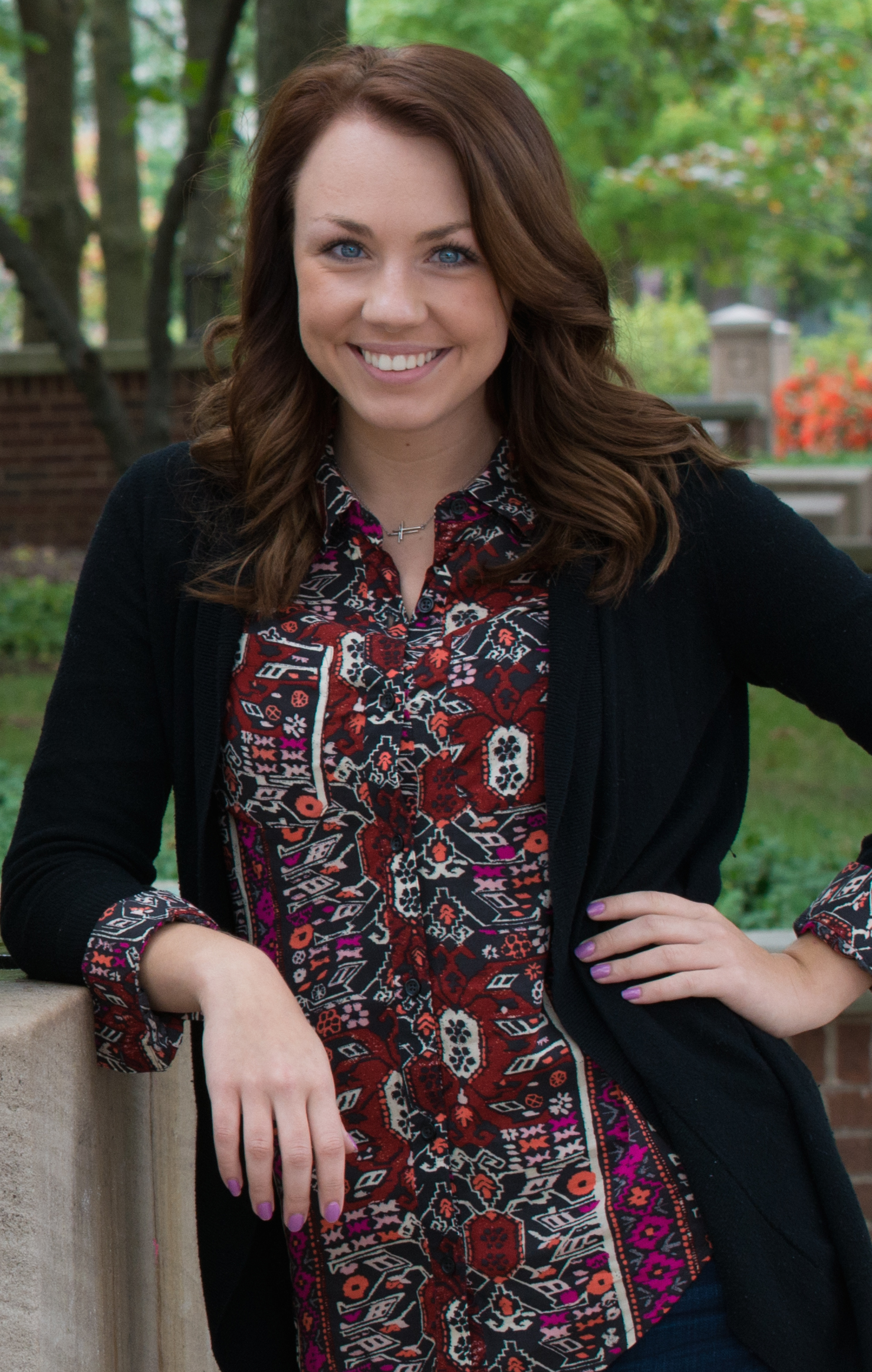Brittany Mihalec-Adkins
April 21, 2015

Brittany Mihalec-Adkins
Colleges: College of Health and Human Sciences, College of Liberal Arts, and Honors College
Majors: Psychological Science and Law & Society
Minor: Forensic Science
Certificate: Diversity Leadership
What is your passion and why do you do what you do?
I really care about educational equity. Through working to raise money for scholarships, mentoring first-generation college students, and tutoring students with disabilities, I’ve decided that advocating for student success is where my heart is. Nothing makes me feel as fulfilled.
Why did you choose to graduate with Honors? What was the main benefit for you?
I wanted to do my best at Purdue, in whatever ways I could. Graduating with Honors was a way for me to show myself, and the world, that I’m serious about getting the most out of my time at Purdue. I’ve gotten to take some really cool classes with really great faculty that I would not have met without my Honors track.
How have you changed since freshman year?
I’m not afraid of the unknown anymore. I used to be so terrified of not having plans, but I’ve come to find it exciting, and that’s been instrumental in the progress I’ve made in college-both academically and personally.
Explain your thesis/scholarly project.
Ninety-four domestic Purdue students were told that that they would evaluate a potential policy supposedly being considered by the university and provide opinions on the information. Participants were either presented with an article discussing a policy that would grant international Asian students priority registration or a control brochure. Next, participants wrote about their attitudes toward international Asian students (IAS) and the bases for their feelings. We found that participants exposed to the article regarding priority registration for IAS experienced realistic threat (both relevant to the manipulation and more generally) and a greater willingness to express negative attitudes toward IAS, relative to participants in the control condition.
How did you get into this research?
I started working with Dr. Margo Monteith studying stereotyping and prejudice after taking her Honors section of Social Psychology. I really liked the work she does and thought I’d try working in her lab. I loved it!
What were some of the highlights during your college career?
Working with younger students and watching them grow has been the most amazing part of my time at Purdue. One student in particular has blossomed from a timid, unsure girl into an enthusiastic, excited, successful woman. I feel so fortunate to have been able to help her discover how much Purdue has to offer her.
What was your favorite Honors course and why?
My favorite honors course was probably HONR299: Freedom in America. It was a small class, which allowed a lot of honest, comfortable conversation about hard topics, such as race and class. It was the first class I’ve taken where the professor really treated the students like colleagues, and made everyone feel like their opinion mattered as much as his.
Tell us about a few of your extra-curricular activities that played significant roles during your time at Purdue.
I’ve been really involved with the Diversity and Inclusion committee within PSG for the past 2 years. In this role I’ve had the chance to serve on some really cool committees, meet some really passionate people, and do some really good work. I’ve also been earning a certificate in Diversity Leadership through the DiversiKey program, which has awarded me invaluable opportunities to travel and learn.
What’s next after graduation?
I’ll actually be starting a Master’s program in Educational Psychology at Purdue in August! After that? Good question!



